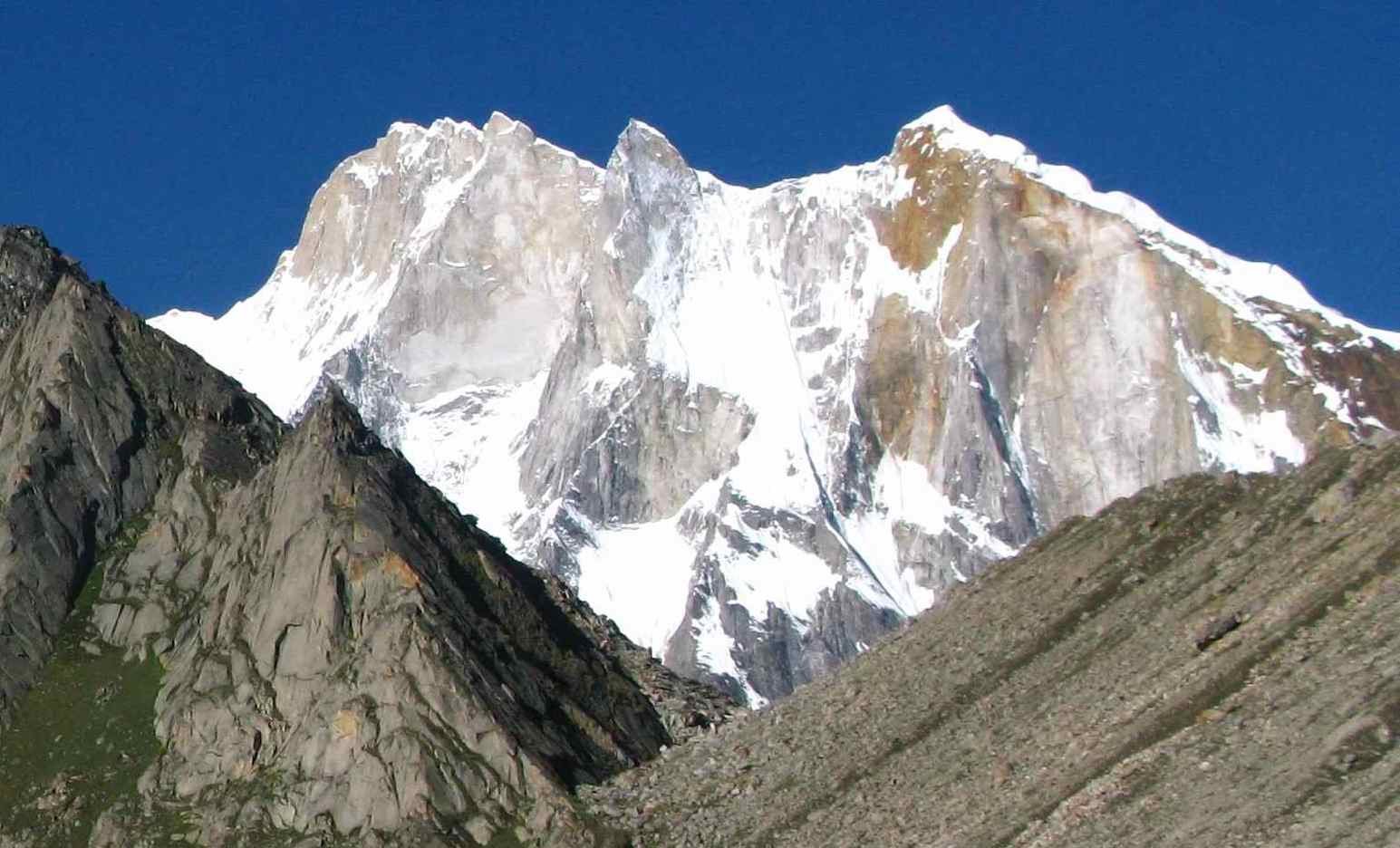In 1924, the British mountaineer George Leigh Mallory was famously asked, “Why climb Mount Everest?” I’m sure you know his reply. “Because it’s there.”
He didn’t make it. Mallory perished in his attempt to be the first to the top of the world. In fact, his frozen body would only be found in 1999 by an expedition formed specifically to find him.
This last month may feel as if we all have climbed a mountain. We elevate ourselves with holy days spent in prayer and song, beautiful family dinners and lively break fasts. We share Sukkot celebrations with a concert, sushi and… even a little scotch? Tomorrow we will dance and twirl with the Torahs as we start our reading cycle again. And then what? What’s next?
The short answer is…nothing. But we’re not here for the short answer, are we?
In a week or so we will enter the month of Marcheshvan, the eighth month of the Hebrew year. Did you know that it’s the only month with absolutely no Holy Days. Zero. Zilch. Nothing.
The number seven is big in Judaism, you know this. The seventh day is Shabbat. Seven years is the Sabbatical year. Seven times seven the Jubilee year. But what is the message of eight?
As we start Shemini Atzeret tonight, the “eighth day” of Sukkot, we understand that eight is…that feeling you get the morning after a big night out, the day after your wedding or bat mitzvah. Honestly, eight can be a little bit of a let down. All the excitement, all the preparation, all the thrill of the event…and then life goes on the next day. It’s the moment when you wake up, look in the mirror, and think, “Now what?”
In Temple times, all throughout Sukkot, there were numerous sacrifices offered every day, but on Shemini Atzeret, it was pared down to just one cow and one ram. It was a rest, a pause, a recovery. The party is over.
The darkness comes earlier in the day now. Cold weather is on the way and sooner than we think. Time to check radiators, dig out the winter coats. Some may be more anxious than usual. Maybe our minds drift to uncomfortable feelings or thoughts. Seasonal affective disorder is real for many people.
This last month, it may have felt that the Holy One was near to us, holding our hands. And now there is the lingering scent of woodsmoke in the air, trees are beginning to turn, leaves starting to fall. The hand lets go. How do we transition? What’s next?
We know why we climb the proverbial mountain. Because it’s there, right?
How do we climb the mountain without getting lost?
When someone goes to climb Everest now, they will spend one to two months in the base camp. From there, they will make several trips up and back, going higher each time, just to acclimatize themselves to the cold, the lack of oxygen, the thinner atmosphere. It takes time and patience. It’s not just marching up the mountain and shouting, “Top of the world, Ma!”
Marcheshvan comes to teach us that God doesn’t need parties, dancing, and feasts all the time. God doesn’t even need fire and passion…or even a little scotch?
Our mission is very much to serve God from where we are. In Psalm 130 we read the famous lines of King David, “Out of the depths I have cried to Thee, O Lord.” Not from the heights but the depths. We can still reach out from a valley, cry out from a low place. A simple place. Start from where you are.
Our Sages teach us that there are only four tzaddikim who never sinned. Do you know who they are? Come ask me later, they are pretty obscure. But. Who did sin? These you already know. All our great ones! Moshe. Joseph. David. Yehudah. Sinners to a one, and each of them imperfect. All served from where they were whether lofty or low.
Moments of triumph come and go. Feelings ebb and flow. The momentary thrill of the party, the event, that’s lovely and wonderful, but it doesn’t last, it doesn’t sustain. Our days and years have peaks and valleys—we must be able to continue through all of them.
After months of practice, climbers spend very little time at the summit of Everest. A moment or two of glory, a few photos and prayer flags…then they head back to the safety of the base camp and soon, real life. No one can live on top of the mountain—the air is too thin, the climate too cold. We are not made for that 24/7/365. But they cherish those brief moments standing where the land meets the sky.
We have hit the summit of our year. Now, in Cheshvan, we come back to the base camp to recover, to reacclimatize, to sit in the quiet and reflect.
What is our most famous mountain in Judaism? That’s right. Mount Sinai. And when the Torah was going to be brought down to Moses, he gave a warning to the Israelites gathered all around. Do not attempt to ascend the mountain — do not even touch it. Whoever touched it would be put to death immediately. The presence of the Lord, the Shechinah, descended in a cloud on the mountain and was simply far too powerful for the people. But listen to this,
בִּמְשֹׁךְ֙ הַיֹּבֵ֔ל הֵ֖מָּה יַעֲל֥וּ בָהָֽר —
When you hear the long drawn out sound of the shofar letting you know that the Shechinah has departed, then you can ascend. What? Nu? Then we can ascend? Yes. Because it was there.
This is the moment that God wants to see us climb. That’s the challenge of the eighth day, the eighth month. It’s easy to be motivated when you feel excited and energized by spiritual nearness, when you hear the shofars and shake leaves and make a lechaim. Anyone can feel that, anyone can do that.
What God asks in Marcheshvan is that we wake up on a dull, gray morning, maybe make a cup of coffee, deal with our day-in, day-out drudgery, and serve Him from where we are right now, right here, serve Him with kindness, mitzvot, learning, and love. When you can do that, when you can serve Him as well in the quiet as in the excitement, well, that’s the key. We can thrive from a place of emptiness.
One of my favorite movies is a documentary called Meru. This is a mountain in the Himalayas that no one has ever been able to conquer. It is 20,000 feet of ice and rock that ends with 1500 feet of flawless granite. The film is the story of three world-class experts in high-altitude mountaineering as they attempt to be the first to summit what’s called the Shark Fin.
It is an incredibly difficult climb, they’re going strong, but then they get stuck in a portaledge in a storm only 500 feet from the summit. Days go by. They run low on food and fuel. Eventually, they have to turn around for their own safety.
Now, that’s NOT the end of the movie and I am not going to spoil it—you’ve got to watch it. The thing is, even as they descended, even as they had failed, one of their team, Conrad Anker, was already thinking of how to try again, how to get back up the mountain, how to reach that summit. He was well aware of the risk–you see, Conrad Anker had led the expedition to find George Mallory’s body.
We may try and try again to reach the spiritual heights of Tishrei—and for a cantor, yes, those heights also take a lot of oxygen. It’s the pinnacle of my year. But it’s not the entirety of my life. The next morning we still have to wash the dishes, feed the cat, rake the leaves.
Spirituality is not only about summits but also sitting with what comes next. It’s knowing that in the darkness, at the base camp or below, looking up at the empty mountain, meaning is found in climbing again and again and yet again. Because it’s there.
Chag Sameach and Shabbat Shalom.
Featured image: Meru’s three peaks from left to right: Southern, Central, and Northern. The Shark’s Fin is just left of the wide snow slope in the centre. Credit: lluis Cabarrocas Ribas

